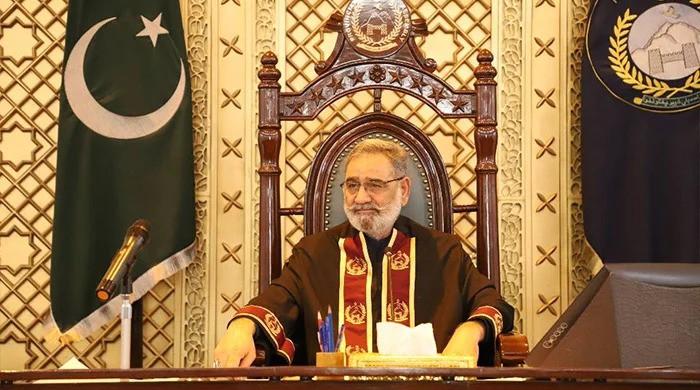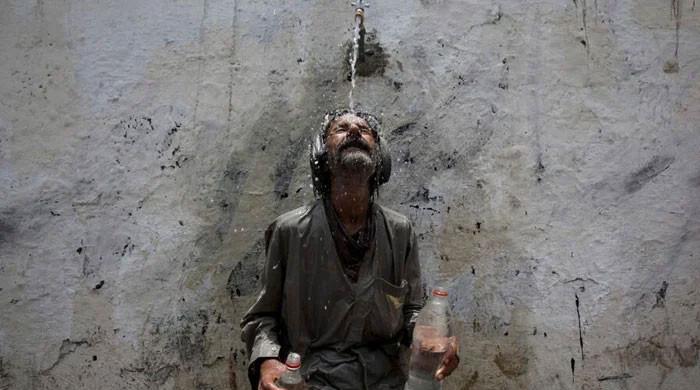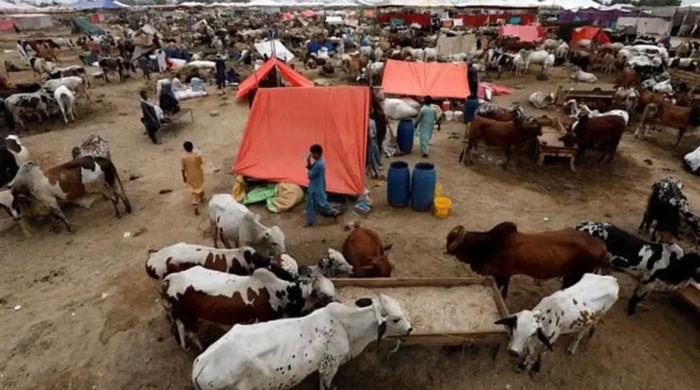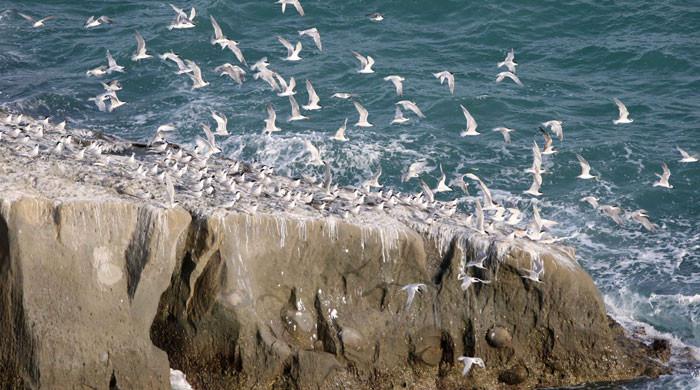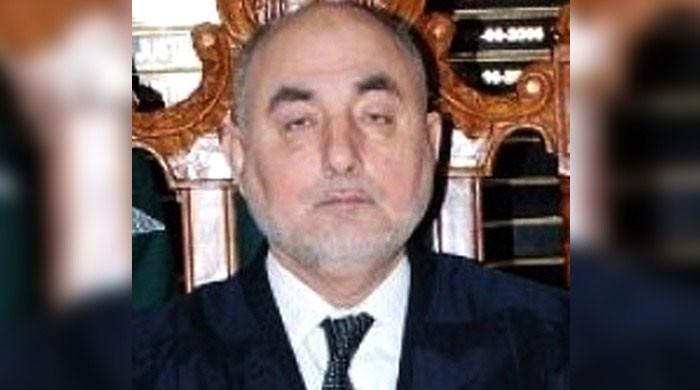New Toshakhana reference against Imran, Bushra transferred to another court
Special judge central will hear couple's bail pleas in gifts reference, rules accountability court
September 09, 2024

- Judge Ali Warraich hears Imran Khan, Bushra Bibi's bail petitions.
- NAB says bail pleas should be heard by relevant court.
- Special judge central to hear couple's bail pleas tomorrow.
RAWALPINDI: After the Supreme Court's landmark verdict on the National Accountability Bureau (NAB) amendments, an accountability court on Monday transferred the new Toshakhana reference against the PTI founder Imran Khan and his wife Bushra Bibi to a relevant court.
The development was witnessed during a hearing of the incarcerated premier and former first lady's bail petitions in the new Toshakhana reference related to a jewellery set gifted by the Saudi crown prince.
Accountability court's Judge Muhammad Ali Warraich heard the bail pleas of the PTI founder and his wife at a makeshift court in Rawalpindi's Adiala Jail. The ex-PM and his wife were produced before the court.
At the outset of the hearing, PTI founder's lawyer Salman Safdar told the court that the new reference could not be heard by any accountability court under existing laws which came into effect after the restoration of the NAB amendments.
He pleaded with the accountability court to transfer the reference to another court after giving a verdict on the bail petitions.
Last week, a larger bench of the top court headed by Chief Justice of Pakistan (CJP) Qazi Faiz had approved the intra-court appeals filed by the federal government and restored the amendments made to the National Accountability Ordinance, 1999 via the National Accountability (Amendment) Act, 2022.
It was a unanimous verdict by the larger bench which was reserved on June 6 following the intra-court appeals against the top court’s verdict that struck down the amendments to the NAB law passed by the Pakistan Democratic Movement (PDM) government in 2022 in response to the petition filed by the PTI founder.
Under the amendments, the NAB was restricted to investigate into any graft case worth less than Rs500 million.
Additionally, regulatory bodies operating in the country were removed from the NAB purview under the amendments besides transferring the pending interrogations, investigations, and trials against individuals or financial matters to relevant institutions and courts.
When the judge sought arguments from the NAB prosecution team on the couple's bail petitions today, the anti-corruption watchdog officials opposed it, saying that the accountability court was not authorised to hear Imran and Bushra's bail pleas after the changes in the laws.
The prosecutor representing the top accountability body said that under the amended laws, the reference must be transferred to relevant court to decide on the bail.
After hearing arguments from the defence and the prosecution, Judge Warraich adjourned the hearing for three hours.
Later, the judge announced his verdict on the pleas to transfer the case to a special judge central.
He remarked that the relevant court will now hear bail pleas of the accused in the next hearing on Tuesday (tomorrow).
The accused couple had filed separate petitions seeking post-arrest bail in the new Toshakhana case.
Mentioning the state and chairman National Accountability Bureau (NAB) as parties to the case, both the applications filed through Barrister Salman Safdar under Section 9(b) of NA Ordinance 1999 and Section 497 of Criminal Procedure Code (CrPC) request the accountability court to grant post-arrest bail to the couple to in "interest of justice and fair play".
The duo was arrested in the said case on July 13 hours after a district and sessions court in Islamabad acquitted them in the iddat case — also known as the un-Islamic nikah case — which was the last hurdle in the couple's release from jail before the filing of the new cases.




